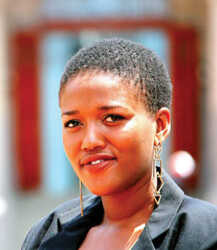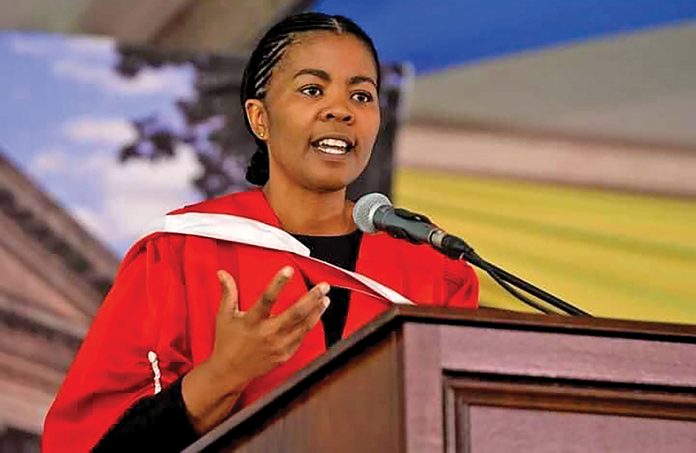If black men have faced the worst of fates, then black women have also placed their lives and bodies on the line. Black women have stood by black men, marched with them, nurtured and guided them, only to be rejected and oppressed by them.
Even while mired in racial-patriarchal oppression, black women still find ways to thrive. One of the places where we see this tragedy play itself out in the most vulgar ways is within higher education.
The irony of this is that universities are supposedly spaces for knowledge production, acceptance and collective engagement. The unspeakably painful irony of this is that universities have been spaces in which black men have made important strides in advancing democracy. Black men were, for example, leaders in the South African Students’ Organisation (Saso), which was rooted in black consciousness ideology.
Today, discourse on decoloniality often echoes statements by luminaries such as Steve Biko. So, it hurts that those black men have not learnt to value the contributions and leadership of black women on every step of the blood-stained march to freedom, even in the hallowed halls of universities. At every turn, black women in higher education have to navigate tremendous obstacles in order to make it to senior
positions. Many move to other industries, hoping to find acceptance.
It is worth remembering how, in 2014, Prof Nthabiseng Ogude was pushed out of office after only two years of her five-year contract as vice-chancellor of Tshwane University of Technology. She was portrayed as being aloof, not engaging with the unions and not being close tothe students.
The University of Cape Town’s vice-chancellor, Prof Mamokgethi Phakeng, has also been met with misogynistic attacks that included having her qualifications questioned.
Few lauded her professorship and fewer commented on the patriarchal obstacles she would have had to overcome to progress in the manner she has.
Despite the questioning of her qualifications, prof Phakeng has managed to cement UCT’s top ranking among universities on the continent.
More recently, Unisa’s first black woman leader, Prof Puleng LenkaBula, has been placed at the fore of the hit list of sexists at universities. Just a little over a year ago, we celebrated her appointment as the first black female vice-chancellor. Now there are calls for her to step down, based on issues that are not unique to her or her leadership. Amid challenges arising from Unisa’s and higher education’s apartheid legacy of systemic exclusion, are problems related to the National Student Financial Aid Scheme (NSFAS) and student funding.
I agree that we have to hold our leaders to high standards, and those who promise to bring much-needed transformation should be held to even higher standards. But it is bizarre to me that people think a complex 150-year history of structural injustice and exclusion can be changed almost overnight now that a black woman is in leadership. These same unrealistic expectations are seldom placed on black men, at least not as quickly.
A lot of the violence directed at prof LenkaBula is coming from breathless black men who hurl innumerable slurs about her “menopause” and insults about the “slay queen” who they say must be removed from power. Yet we know these strategies well. History is full of notes on men discrediting women by claiming they are irrational, fragile, emotional and incapable of making decisions because we are “so burdened by our menstrual cycle or menopause”.
History is also full of injustices faced by women who were necklaced alive. Note this as we observe that the enduring resilience of prof LenkaBula led to more hypersexualised vitriol, further illustrating how normal the sexual objectification of women is, even in our highest citadels of education, even from men who are her subordinates.
If it is hurtful to note that black men are prominent in these attacks, it is calamitous that black men use trade union structures to pull black women down. The new kind of black-on-black violence is frightening, where black men take out their angst on black women in the workplace and other spaces.
Even amid all these attacks, prof LenkaBula and her stalwart colleagues at Unisa have kept the academic ship sailing. She has captained the institution to winning the Excellence for Research Impact award at the 2022 Zairi International Awards hosted in Dubai. This makes me think it matters to honour this good woman leader’s achievements, here at home.
But in the moments when we acknowledge the successes and excellence of black women, we should interrogate and rethink our societies. We must question why black women have to be so strong in the first place. In particular, and sadly, black men must account for the ways their actions push us further to the margins so that we have to have superhuman strength to survive and succeed. This feels treacherous when one would think black men would show solidarity and support black women, with whom they share a history of fighting against unjust systems.
I still dream that we can see all women leaders, such as Ogude, LenkaBula and Phakeng, as the important symbols and change makers they are. Perhaps then they, and all of us, will be met with more honesty and grace than we are giving them.
- Shange is a lecturer in the department of sociology at the University of the Free State and she is also chairperson of the UFS Women’s Forum

Follow @SundayWorldZA on Twitter and @sundayworldza on Instagram, or like our Facebook Page, Sunday World, by clicking here for the latest breaking news in South Africa. To Subscribe to Sunday World, click here





